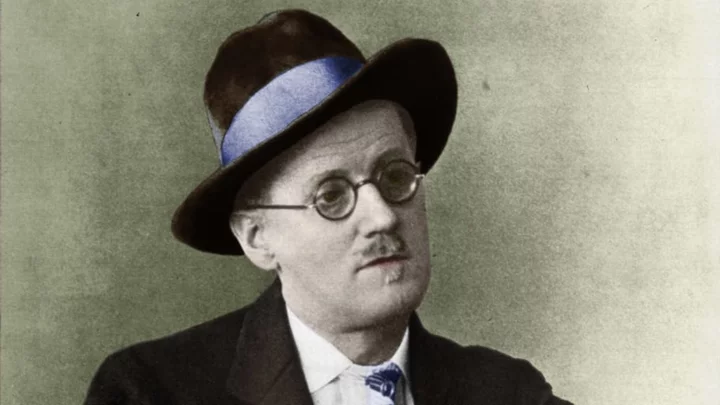James Joyce once famously declared, “The demand that I make of my reader is that he should devote his whole life to reading my works.“ After 28 years, members of a Venice, California-based book club have come pretty close.
Finnegans Wake, Joyce’s last and most famously challenging novel, has been described as a “30-dimensional polyglot crossword puzzle,” and the club’s reading pace certainly reflects its difficulty. For nearly three decades, the book club has met once a month to spend two hours deciphering just one to two pages of the novel, and begins with members reading the pages aloud. It’s a surprisingly challenging task due to Joyce’s tendency to make up words (sometimes comprised of more than 100 letters) and play with sound. When asked to describe what reading Finnegans Wake is like, club founder Gerry Fialka told the Greater LA podcast it’s “almost like tripping on acid.”
But what exactly makes Finnegans Wake so indecipherable? For one, the novel rejects the very concepts of beginning and ending. It bucks convention immediately, as page three (the first page) starts right in the middle of a bewildering sentence: “riverrun, past Eve and Adam’s, from swerve of shore to bend of bay, brings us by a commodius vicus of recirculation back to Howth Castle and Environs.” The novel’s last line, seemingly unfinished—“A way a lone a last a loved a long the”—is actually the first half of the novel’s first sentence, making the novel a circular reading experience. And the over 600 pages in between are equally peculiar.
“Finnegans Wake isn’t just difficult—many consider it unreadable,” said NPR reporter Anna Scott. “It doesn’t follow normal storytelling conventions, you know, like consistent characters or a coherent plot. Instead, it’s dreamlike, full of made-up words, puns, run-on and disjointed passages.”
For book club members, though, struggling through Finnegans Wake together forms a sense of community. Many members find that the group setting helps them to tease out larger themes and references they otherwise might have missed, from nods to Norse mythology to passages questioning what happens after death. It also reassures them that, for a lot of readers a lot of the time—including book club member Joseph Patwell—Finnegans Wake feels “lovely to hear, but ... has no meaning.”
Sam Slote, a professor at Trinity College and Joyce expert, views the novel as a great equalizer. “You have to accept that no one person is really going to get it, which is where the idea of community reading can really kick in,” he told The Guardian.
This sense of community is, perhaps, why the group’s regular meetings have never faltered over 28 years. The meeting place has changed several times and the club was moved to Zoom during the COVID-19 pandemic, with attendance varying between a dozen and 30 members over the years, but the readings have always plodded ever on. And the Venice book club isn’t the only one interested in the daunting classic. Similar clubs have cropped up in New York, Switzerland, and Australia, with each one planning for it to take members more than a decade to reach the end of the novel.
The Venice club, meanwhile, finally finished Finnegans Wake in October. That final Zoom meeting brought up an important question: What now? Given that the club has been reading the book for nearly 30 years, choosing what comes next could’ve been impossible. After all, what other piece of literature could measure up? Perhaps another Joyce novel? But for club members, the answer was obvious: none.
And so, just like the novel, the Venice book club has rejected an ending. Instead, they’ve circled right back to page 1 of Finnegans Wake—or rather, back to page 3. Older members will be reading those beginning lines for the first time in nearly three decades, and newcomers will find no better chance to take up the Finnegans Wake challenge. Here’s to 28 more years.
This article was originally published on www.mentalfloss.com as A Los Angeles Book Club Has Spent 28 Years Reading James Joyce’s ’Finnegans Wake’ and Still Doesn’t Understand It.









